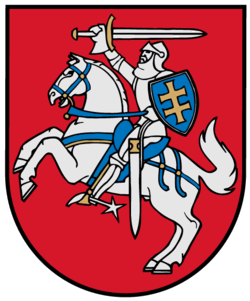The birth of Lithuania as a European nation is celebrated on July 6th. This day marks the date when Lithuanians and their lands were united by their first and only King, Mindaugas, in 1236. Over the next hundred years Lithuania became one of the largest territories in Europe, extending from the Baltic coast to the Black Sea.
- An alliance with Poland in 1386 led to the two countries having a single ruler.
- This alliance evolved into the Polish – Lithuanian Commonwealth in 1569 – which lasted for additional 200 years.
- The Commonwealth was partitioned in 1795 by the treaty between Russia, Prussia and Austria. This ended the power and the influence of Lithuania and Poland as a combined nation for the next 123 years.
- On February 16, 1918, Lithuania was established as a democratic state. It remained independent until 1940. Although it was claimed as a state of the Soviet Union, it remained a separate nation recognized by the United States and many other countries.
- On 11 March 1990, Lithuania became the first country to declare its independence from the Soviet Union. Lithuania has since restructured its economy and politics to be fully integrated into the Western European institutions.
- Lithuania has been a member of NATO and the European Union since 2004.
- At the current time (2015), a Lithuanian diplomat is representing all the countries of the European Union as the EU Ambassador to Russia.
For more detailed information, the following article on Wikipedia may be helpful:
https://en.wikipedia.org/wiki/History_of_Lithuania


